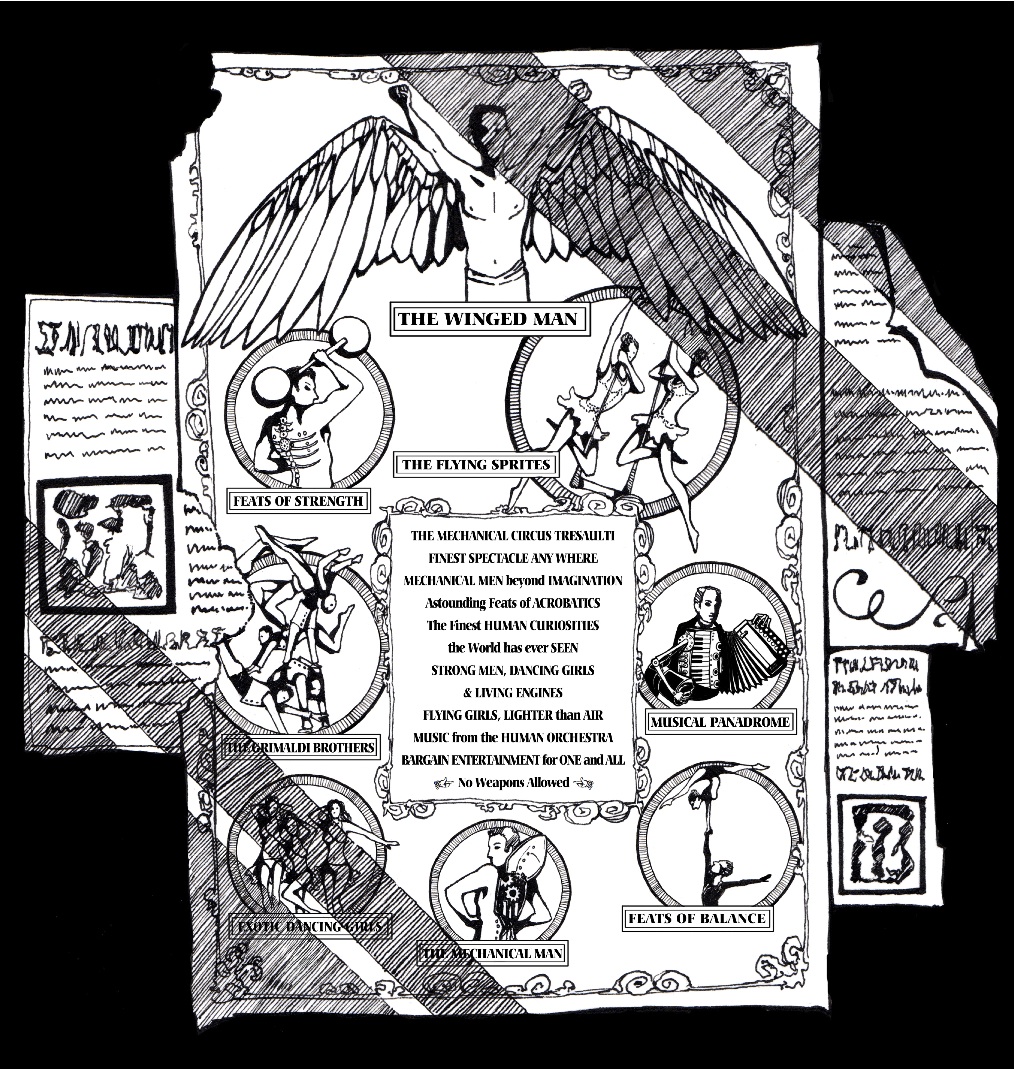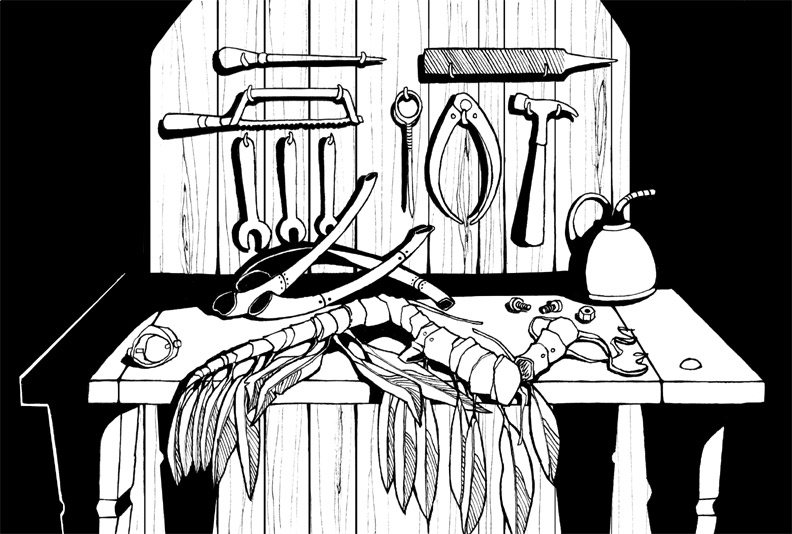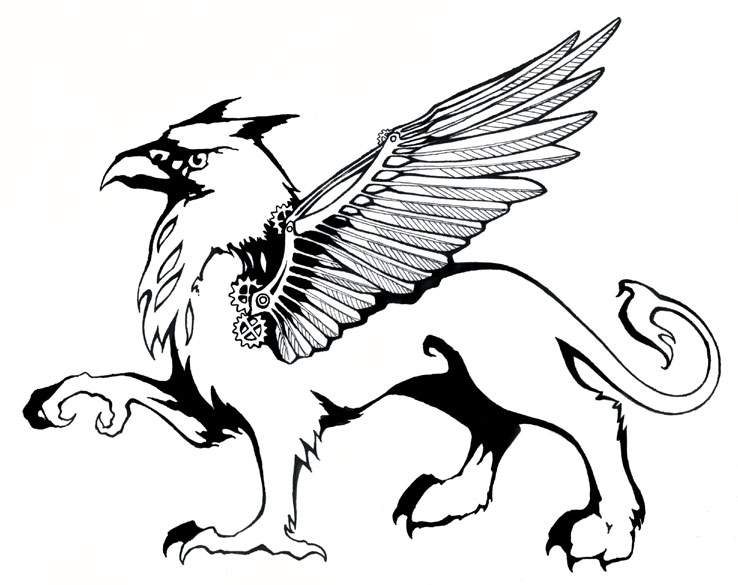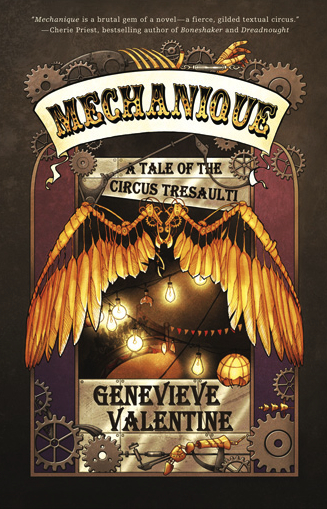Mechanique: A Tale of the Circus Tresaulti, by Genevieve Valentine, will re-instill in you the sense of wonder, awe and terror of a small child’s first encounter with a circus. The gorgeous, war-torn aesthetic and the stunning literary prose will captivate the reader, but I warn you that the Circus Tresaulti, replete with the denizens and ideas it gives birth to, is as dangerous as it is glamourous
We are introduced, immediately, to a post-apocalyptic world in which a steampunk circus—men with seven foot metal arms, aerialists with hollow bones, living trapezes, men with metal lungs—travels through a ravaged world, constantly at war and constantly being destroyed. It’s stunning and a fascinating premise, but Valentine barely gives you time to settle into the landscape before she is genre bending and building. The prose is reminiscent of poets and magical realists—a child of Gabriel Garcia Márquez and Catherynne M. Valente—while the plot is a magical wartime, coming of age, adventure novel. There’s a healthy dose of political intrigue and some thriller-like escape scenes woven in for good measure. Valentine builds and paints so swiftly and elegantly that you are backstage, on the crew of this strange circus—and stranger world—before you’ve even seen the show.
Spoilers, some of the gorgeous illustrations by Kiri Moth, two free short prequels and an invitation to see the show at Genevieve’s Launch Party, Friday, May 6th in Brooklyn, below.

There’s a feeling of restlessness throughout the beginning. It switches points of view, tenses and narrative time almost each chapter, while maintaining a slow, fever-dream intensity. Despite the switch in POVs, Valentine, with great craft, keeps it all circling around Little George, so that even when a chapter or story doesn’t include him at all, the reader still feels him—in some ways he is the circus—and feels his narrative pushing forwards.
The last lines of each short chapter are ominous, prophetic and almost teasing—hints at terrible things; Alec’s fall, Bird’s fall, Government Men, Boss leaving—until a little more than halfway through. Subtly, creeping up while you are almost unaware, those last lines shift into the present and you wake up—like George, when Boss gives him the griffin tattoo—to the clear realisation that it was all leading to now. As the second half of the book begins to gather momentum, you find yourself holding your breath as you hurtle towards the inevitable battle with the characters—torn when they are, cheering with them when they are reunited and broken a little more, with them, when the battle is over. Mostly, I felt myself with Bird and Little George, in the trailer, as he grew into Boss’ power and remade Bird into The Bird.

The heart of the book lies in the relationships the circus creates and fosters. Ying and George have what seems like a natural progression, but it only blossoms once George is embued with the magic of the circus itself; Elena and Alec are tied together by her very bones; Boss ties them all to herself and the circus with her magic. As George changes and grows into his role of responsibility, so we see the circus family change and grow into a tighter community, but also a harsher one. Valentine shows us a world where the only way to survive—and even to love—is through almost unbearable cruelty and forces us to sympathise with the cruelest of them all.
The middle, just as it starts to pick up, begins to explain so much but in the increasing drive forward, leaves possibly too many questions half-answered surrounding the mystery that is Boss. There’s a sense of skating over the history of Boss and her powers so that the present narrative can build more quickly. It detracts very little from the book, but the lushness inherent in the descriptions of the rest of the book falls a little shorter during the earlier timeline. It certainly comes back in full force as we approach the climax, however, and I was desperate to start piecing things together for the crescendo, so it wasn’t really even until after the book had ended that I realised I could have wanted more there.
Mechanique is not an easy book (to read or to write about); it challenges you stylistically at every turn, but also emotionally. It is a beautiful study in trauma and recovery, individually and within a community; both the personal, immediate—Alec’s death—and the more overarching ways in which everyone reacts to the war that shapes the country and all of their lives. It is an important book, but like all the best books, it’s also great fun.

Come celebrate the launch of the exciting and gorgeous new book, Friday, May 6th: Details on Facebook or at Genevieve’s site.
And if you’re not yet ready to put yourself on Boss (or George’s) table quite yet, you can read sample chapters and delve into the world of the Tresaulti in more depth here.
You can also read a short story, “Study for Solo Piano,” set before the book, over at Fantasy Magazine, or “The Finest Spectacle Anywhere” over at Beneath Ceaseless Skies.
Nina Lourie is ready to run away to the circus on Friday night and try for the wings herself. She’s already pretty mad, so what could it do to her?










